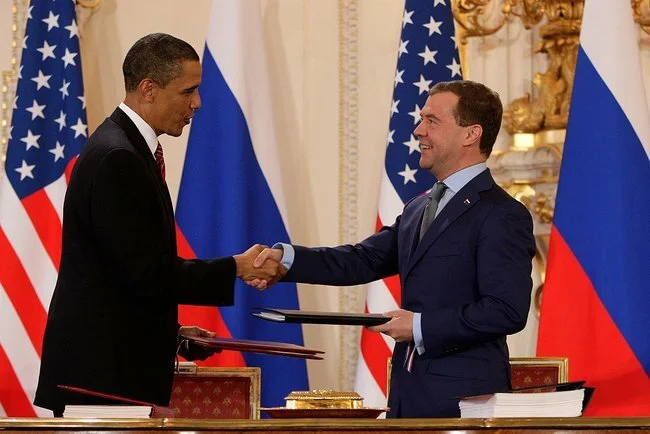Panelists:
THOMAS COUNTRYMAN, Chairman of the Board of Arms Control Association, Washington DC
ANTON KHLOPKOV, Director of Center for Energy and Security Studies, Moscow
GAUKHAR MUKHATZHANOVA, Director of the International Organizations and Non-Proliferation Program, Vienna Center for Disarmament and Non-Proliferation
Moderation:
ANGELA KANE, former United Nations High Representative for Disarmament Affairs, International Institute for Peace - IIP
Content:
New START was the last remaining bilateral arms agreement between the United States and Russia, putting a crucial cap on each side’s strategic nuclear arsenals of 1,550 deployed warheads and 700 deployed missiles and heavy bombers.
The support for the extension of New START was strong in both countries. Russia offered in December 2019 to extend New START for a full five years without any conditions, but the discussions under the Trump administration were acrimonious and ended without result.
Within days of his inauguration, US President Biden agreed to extend New START for the full five years, and the Russian Parliament ratified the extension of the treaty within hours of receiving it. This was an auspicious start to 2021.
Will this be the beginning of a new effort to engage in rebuilding a nuclear arms control architecture? Will it extend beyond the US and Russia? Will it improve the atmosphere at the tenth Non-Proliferation Treaty Review Conference to take place in August 2021?
Previous discussions in the series “USA: Back to Multilateralism?” include:
20 January: The Treaty on the Prohibition of Nuclear Weapons (TPNW) enters into force 🎬
21 January: What Future of US-EU cooperation? Reflections on the Inauguration of the 46th president of the US 🎬
Next planned discussions in the series “USA: Back to Multilateralism?” include:
15 March: The Iran Nuclear Deal (JCPOA) and a Nuclear Weapon Free Zone Middle East (NWFZME)
Picture: Kremlin.ru

